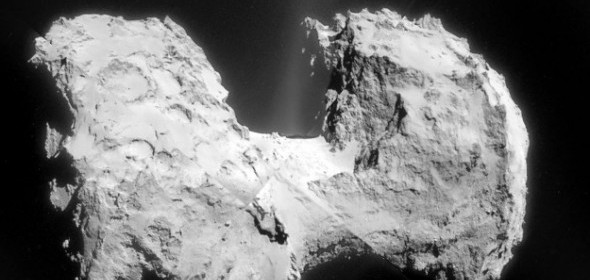Comets didn’t bring Earth’s water

Scientists have long puzzled over the origins of Earth’s vast oceans. Now, new data from the Rosetta spacecraft appear to have crossed one potential source off
the list: comets. Rosetta has been in close orbit around comet 67P/Churyumov- Gerasimenko since August, analyzing its chemical makeup. Among the mission’s goals was to determine if the water locked in the comet’s icy surface has the same “signature” as water on Earth, a finding that would bolster the theory that our once-dry planet was “seeded” with water via primordial impacts with comets.
As it turns out, 67P’s water molecules contain a high ratio of deuterium, a hydrogen isotope that is found in only three of every 10,000 water molecules on Earth. “This kind of comet could not have brought water to Earth,” says lead scientist Kathrin Altwegg. The discovery helps bolster a competing theory on the source of the oceans: impacts from asteroids, which, previous studies have shown, do contain water chemically similar to our own. Asteroids “are also much closer,” Altwegg says, “so it is more likely they hit the Earth than the very distant comets.”

 Print
Print